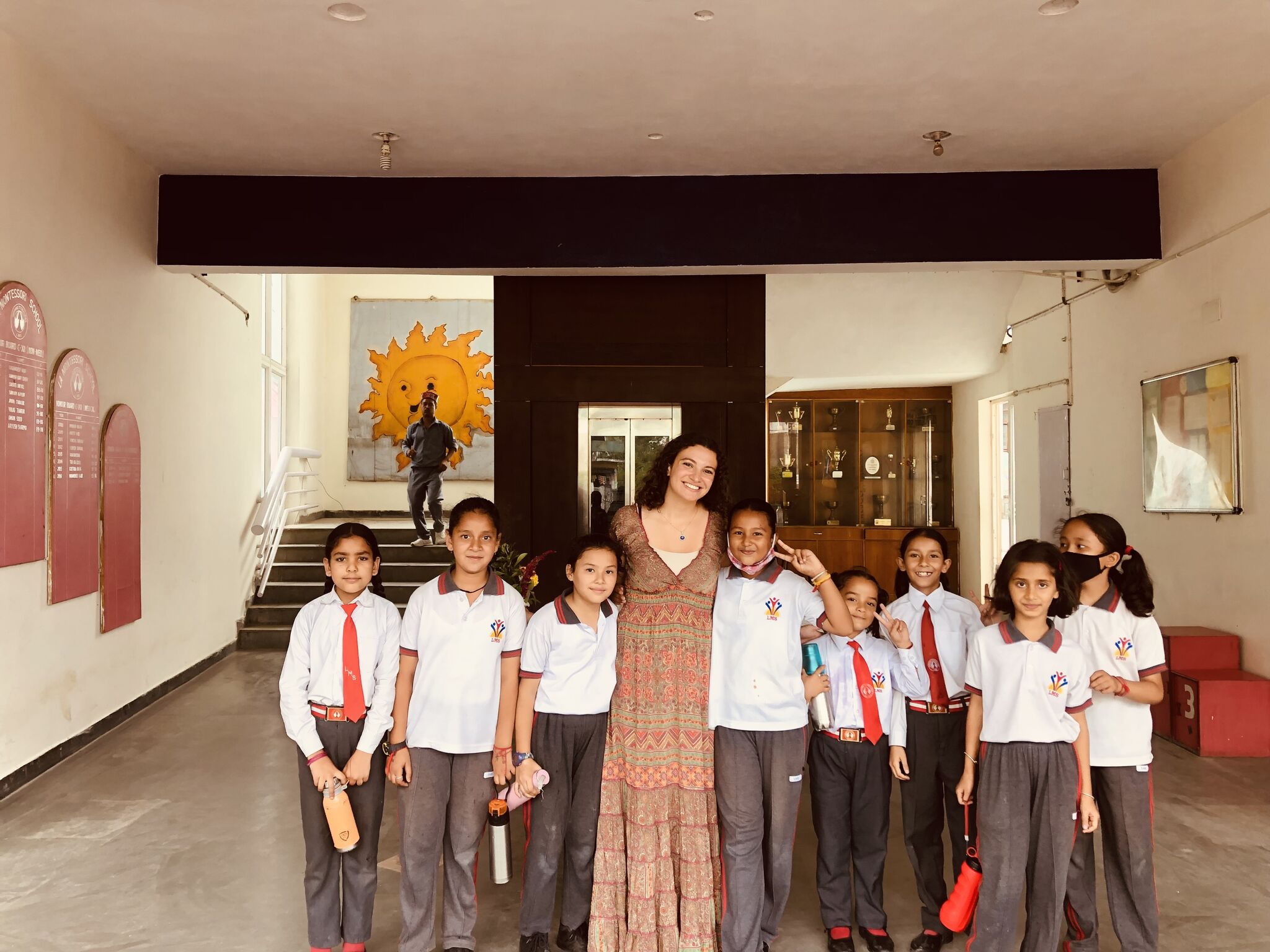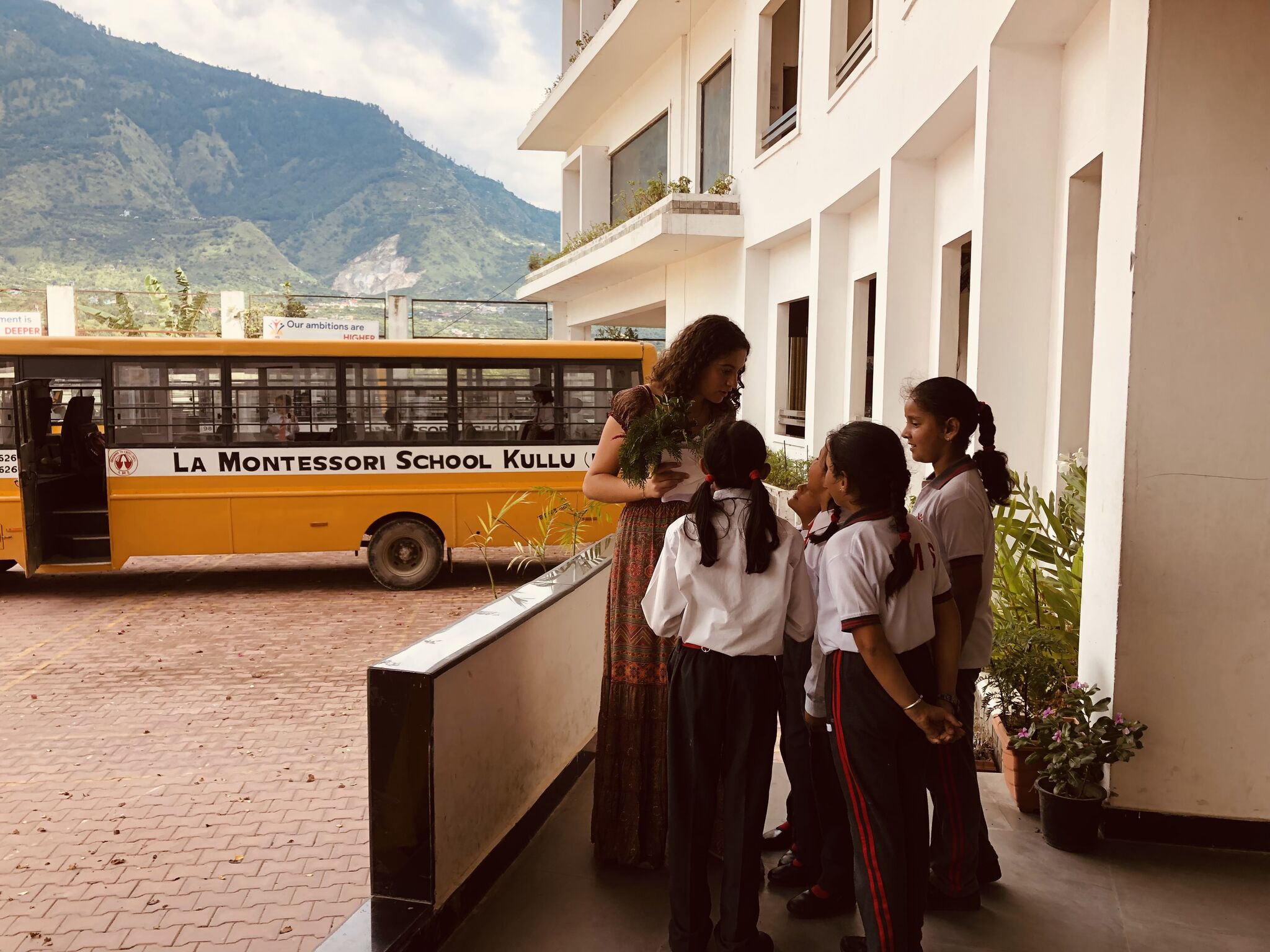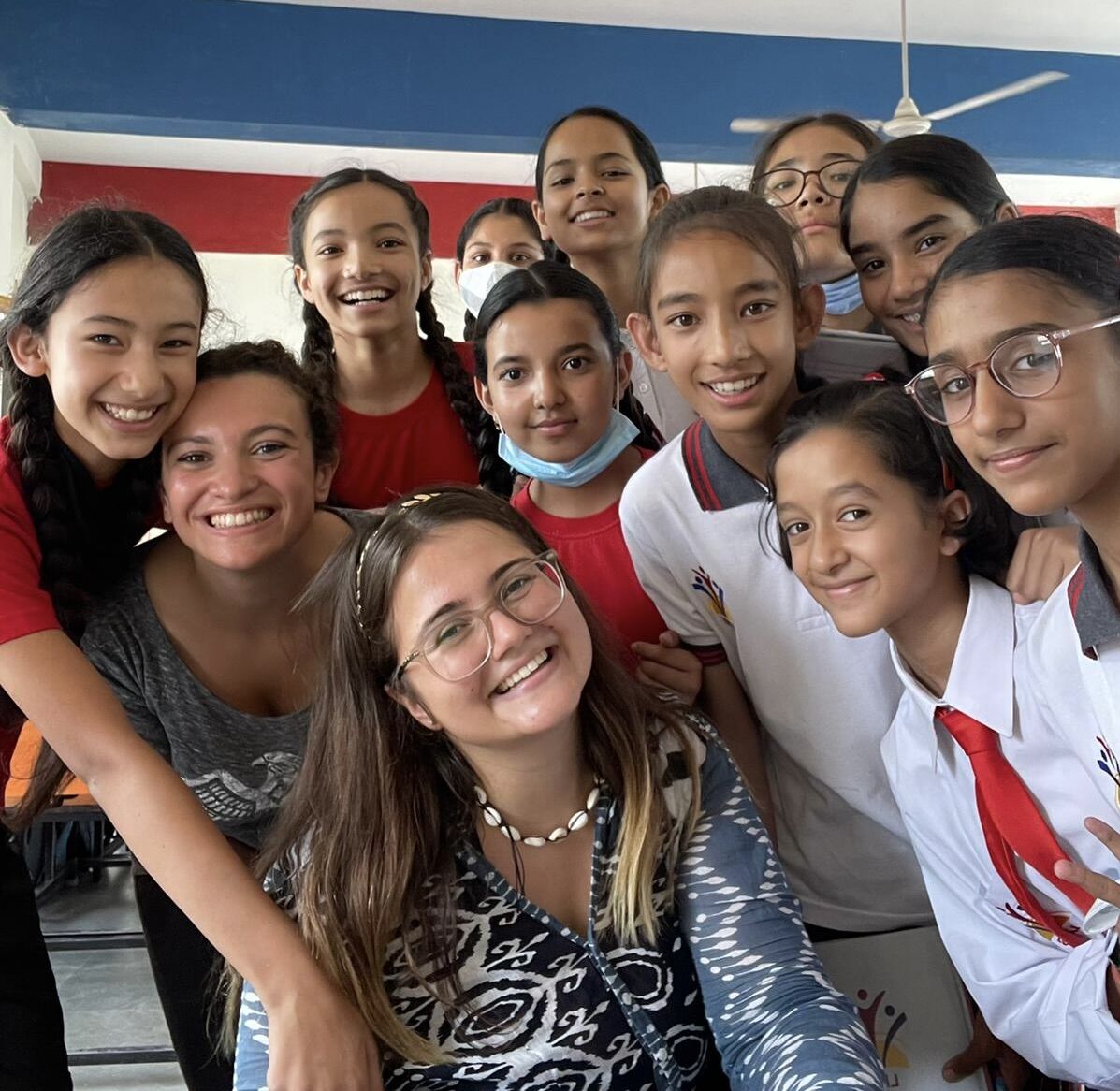Valentina Lopez-Yanes Redivo
Bachelor in International Relations

After 15 hours in the air and a 10-hour drive to Himachal Pradesh, I arrived to Kullu. I had never been to India before and this August I had the wonderful opportunity of volunteering at a school in the Himalayas. I was invited by La Montessori Schools to teach students from Year 3 to Year 7. It was a huge privilege and I can happily say it has been one of the best experiences of my life.
My purpose at the school was to add value to the traditional Indian curriculum by allowing the students to learn new subjects. When planning my classes, I tried to link my bachelor’s in International Relations to this experience. My original plan was to lead a Model United Nations at the school and develop their negotiation and diplomatic skills. Nevertheless, I soon realised that most of my classes were too young to participate, as Year 3s and 4s had not yet interiorised the concept of a country. Hence, I had to adapt my original plan to a young audience.

In the search for a Plan B, I had the wonderful opportunity to team up with Theodora Thomaidou. We combined our ideas and created a course where we taught students about cultures, languages, and traditions from around the world. Our main aim was to expand their horizons. We focused on developing the student’s public speaking, critical thinking, and confidence skills. These skills are seldomly touched upon in traditional curriculums and we believed it was vital for students to be able to speak their minds confidently.
The activities consisted of interactive digital games, presentations on global topics, and teamwork building. For example, for the younger grades we created an activity where students had to come up with an imaginary country and its flag. We were mesmerised by their imagination as they came up with the ‘Country of Peace’, ‘ Country of Environmental Sustainability’, and even a country where Canada, the US and China were all combined into one. We also taught them about our own countries (Spain and Greece), our languages, and our cultures.

Not only did our activities teach them about the world, but it was impressive to see how confident the students became. For example, during the first week, the Year 4 girls would only engage in activities that involved drawing and painting, and their knowledge of countries and capitals was not as profound as that of the rest of the class. Notwithstanding, as the weeks passed, they started engaging more, recurrently expressing their knowledge, and voicing their opinion. I am proud to say that by the end of my stay, they became the protagonists of the class.
I am extremely thankful for the support La Montessori Schools gave me. I would like to give a special thank you to Uday Kanwar for mentoring us and introducing us to Indian cultural values, norms, and traditions. Lastly, I would like to thank the University of Surrey for awarding me a Turing Scheme grant, without which this experience would not have been possible.

